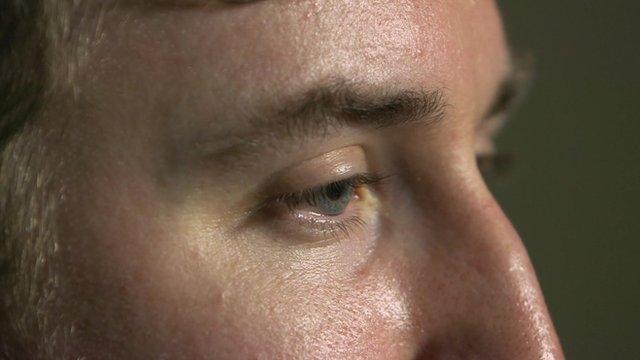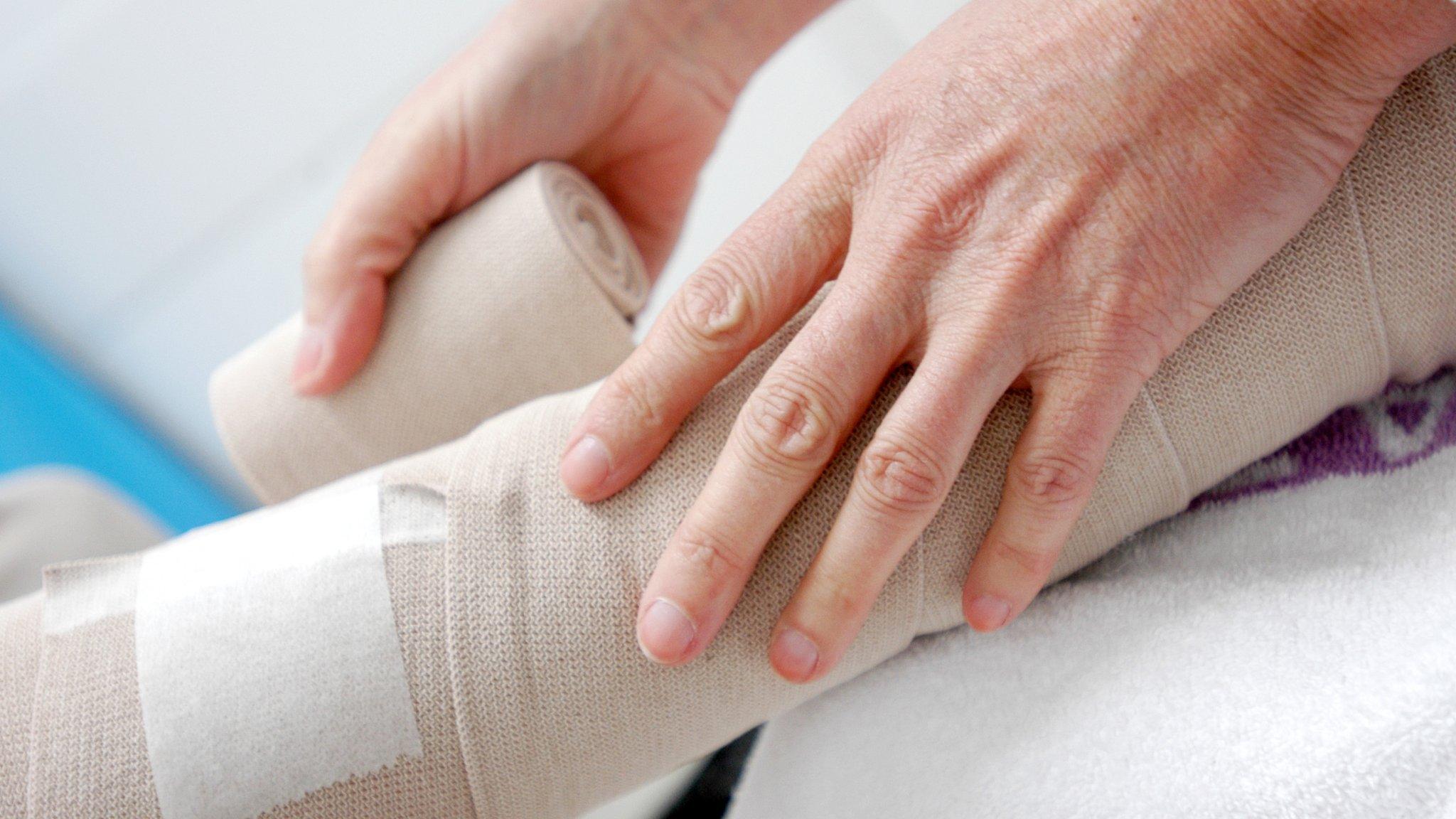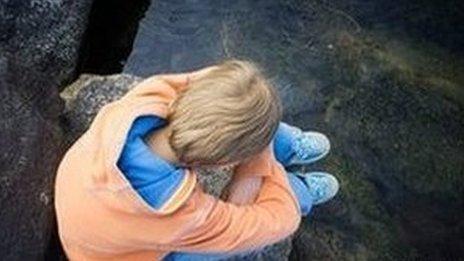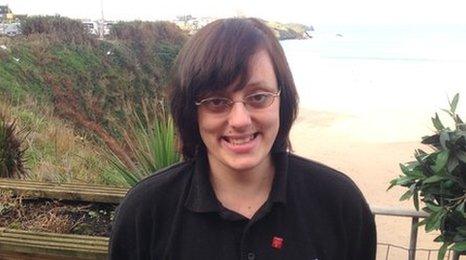Self-harm hospital admissions among children 'at five-year high'
- Published
Sima Kotecha speaks to a young man who explains how self-harming became a way of coping with life.
The number of children being admitted to hospital in England for self-harm is at a five-year high, figures show.
Admissions of girls aged 10-14 increased by almost 93% - from 3,090 in 2009/10 to 5,953 in 2013/14 - with a rise of 45% in boys, from 454 to 659.
Campaigners say the figures could be the tip of the iceberg and "huge numbers" of children - especially boys - were still "suffering in silence".
The government says £30m will be put into mental health care in A&E units.
Experts told the BBC that increases in admissions were partly due to a rise in young people self-harming, but also reflected better recording of data by hospitals.
They said a cultural shift was needed in society to ensure teachers and parents were not afraid to address the topic of self-harm among boys.
'Unable to come forward'
They also said the figures represented the tip of the iceberg because boys often did not like to admit to self-harming because it was mostly perceived as a female behavioural problem.
Boys were also more likely than girls to punch or hit themselves, which some hospitals may not categorise as self-harm, campaigners added.
The Health and Social Care Information Centre statistics showed 659 boys aged 10 to 14 were admitted to hospital in 2013/14, compared with 577 in 2012/13 and 454 in 2009/10.
Matthew Everett, 24, began self-harming when he was 11. He said that earlier this year he was cutting himself "every night".
"Before I would go to bed I would cut myself and then I would go to sleep. Then, the next day, I would do the same just to get that same release to feel I was in control still," he said.
Although figures for 10- to 14-year-old girls were much higher, Rachel Welch - project director of the website selfharm.co.uk - said society must not assume boys did not self-harm.
She said: "Because of the way society has constructed the image of self-harm, it makes it much easier for girls to come forward and ask for help.
"We've actually got a huge number of boys who are suffering in silence, unable to come forward and ask for help because they're struggling with something perceived to be something that only affects girls."
Ms Welch said self-harming had been a problem for a while in children, but that it was previously recognised as "bad or aggressive behaviour".
She also believed children were likely to be influenced by what they saw on the internet and in the family home.
"There is some research that suggests children are more likely to engage in self-harm if they have witnessed it elsewhere," she said.
"For example in older siblings, parents, friends or online - particularly if they perceive it to have had a positive outcome like getting more attention or care."

Case study: Kenlie's story

Kenlie Youngman, 15, began self-harming two years ago.
"I've never seen my biological father, so that's kind of one thing that made me want to self-harm, because it makes me think he didn't want me - he wouldn't accept me," he explained.
"I was also badly bullied which also led to self-harm.
"When I felt really down I would self-harm. I was cutting myself... and the thoughts and things that would get me down would just be released from me.
"But you know, they're not [released in reality], because they could come back to you another day."
His mother Donna Youngman discovered his self-harming when she noticed marks on his arms. She said teenagers hurt themselves as "a cry for help".

Schools 'must do more'
A World Health Organization (WHO) report due to be released in 2015 is expected to show the number of teenagers who have self-harmed has tripled over the last decade in England.
Around 6,000 teenagers - some as young as 11 - were surveyed for the Health Behaviour in School-Aged Children report.
Of the 15-year-olds sampled, 22% said they had hurt themselves on purpose, while 43% said they self-harmed at least once a month.
Professor Keith Hawton, from the Centre for Suicide Research at Oxford University, wants schools to be bold by addressing the problem directly.
He said: "We've got to think prevention here as well - what more can be done through schools to try and reduce the levels of self-harm through psychological well-being programmes.
"These are being tested," he said, "but I think this is really important.
"[It is] about prevention and not just treatment after the event."
As part of the Autumn Statement this month, the government announced it would invest more than £100m in mental healthcare for young people over five years, with the intention of making it easier for them to get specialist help in their community.
Care minister Norman Lamb told the BBC self-harm was a "sign of serious emotional distress and it is crucial that young people get the help they need," adding that he had created a taskforce to advise on improvements to care.
Hear Sima Kotecha's full report on BBC Radio 4's Today programme, on Friday from 06:00-09:00 GMT - or catch up online.
- Published12 December 2014

- Published20 November 2013

- Published27 February 2014

- Published14 January 2014
